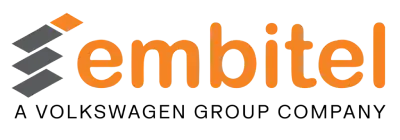Customer:
An European Automotive Engineering Company, specializing in Powertrain and Body Electronics Development.
Business Challenge:
Our customer was in search of a trusted Automotive Embedded technology partner with specialized skills in Mutation Testing of the automotive EPS ECU (Electronic Control Unit).
In order to conform to the Automotive Safety Integrity Level (ASIL) D of the ISO 26262 standard, it is mandatory to test the designed automotive ECU software using Mutation Testing method.
Mutation testing is a code structure-based testing method. In this method the original embedded software code is altered to create mutant code.
- Mutant code is designed to fail for a specific test-case created by QA or testing team. If the original code gives satisfactory output for a test-case and mutant code fails for the same test-case then the mutant is pronounced dead.
- If the mutant code doesn’t fail for a specific test-case, then the test-case is modified and tested for same mutant to ensure that the mutant is dead..

Such a complex automotive software testing procedure can only be performed by a highly-skilled team with in-depth expertise in Advance C and domain expertise of the Automotive Embedded Systems and Control Units.
Our customer also had an urgent need as the project completion timelines were very stringent and ISO 26262 functional safety certification of ASIL D level had to be achieved before the launch of the automotive EPS in the market.
Embitel Solution:
Our Automotive Software Development team not only had the required skills in Advance C coding but we also added value with 10+ years of automotive domain experience.
- We analyzed the entire EPS ECU software architecture and developed in-depth understanding of the complete structure of the software code.
- Our automotive domain experts worked with our QA and Testing teams to identify use-cases and design different test-cases with 100% coverage for all scenarios.
- Our software testing and QA team designed Mutant Codes for all the test-cases.
- The QA and Testing teams partnered with the customer for technology workshops in order to understand and get hands-on training with the proprietary tools.
- All the test-cases were executed and mutant testing results were reported using the proprietary tools of our customer.
- Our automotive ECU software testers analyzed mutant test results to identify ‘acceptable’ and ‘not acceptable’ mutants (mutant codes that were not killed).
- Our automotive engineers reworked on test scripts to kill ‘not acceptable’ mutants.
Tools and Technologies:
- Advanced C skills.
- Mutation Testing method.
- Microsoft Visual Studio.
- Proprietary Tools belonging to the customer.


